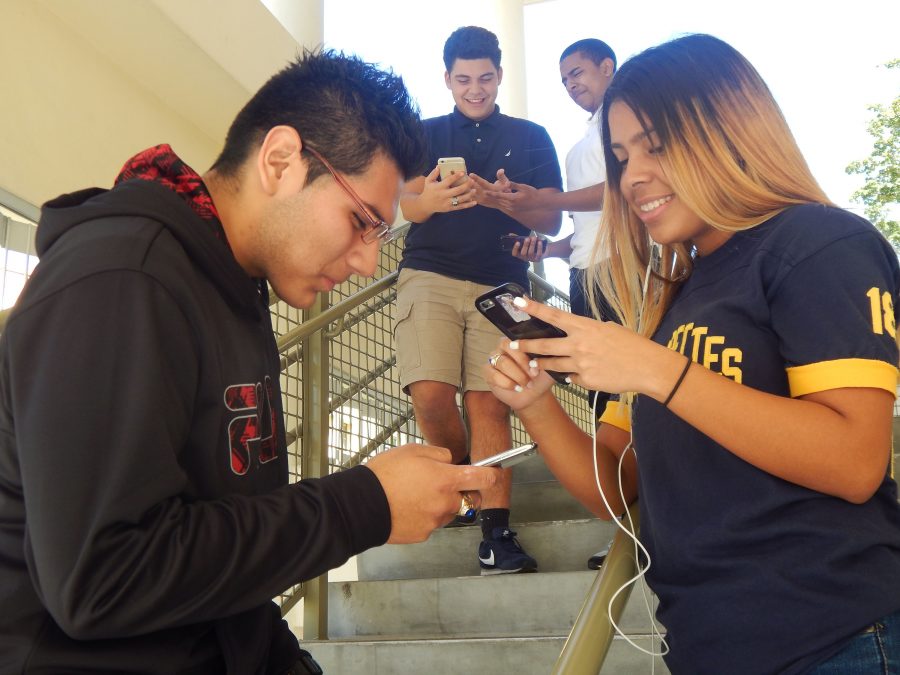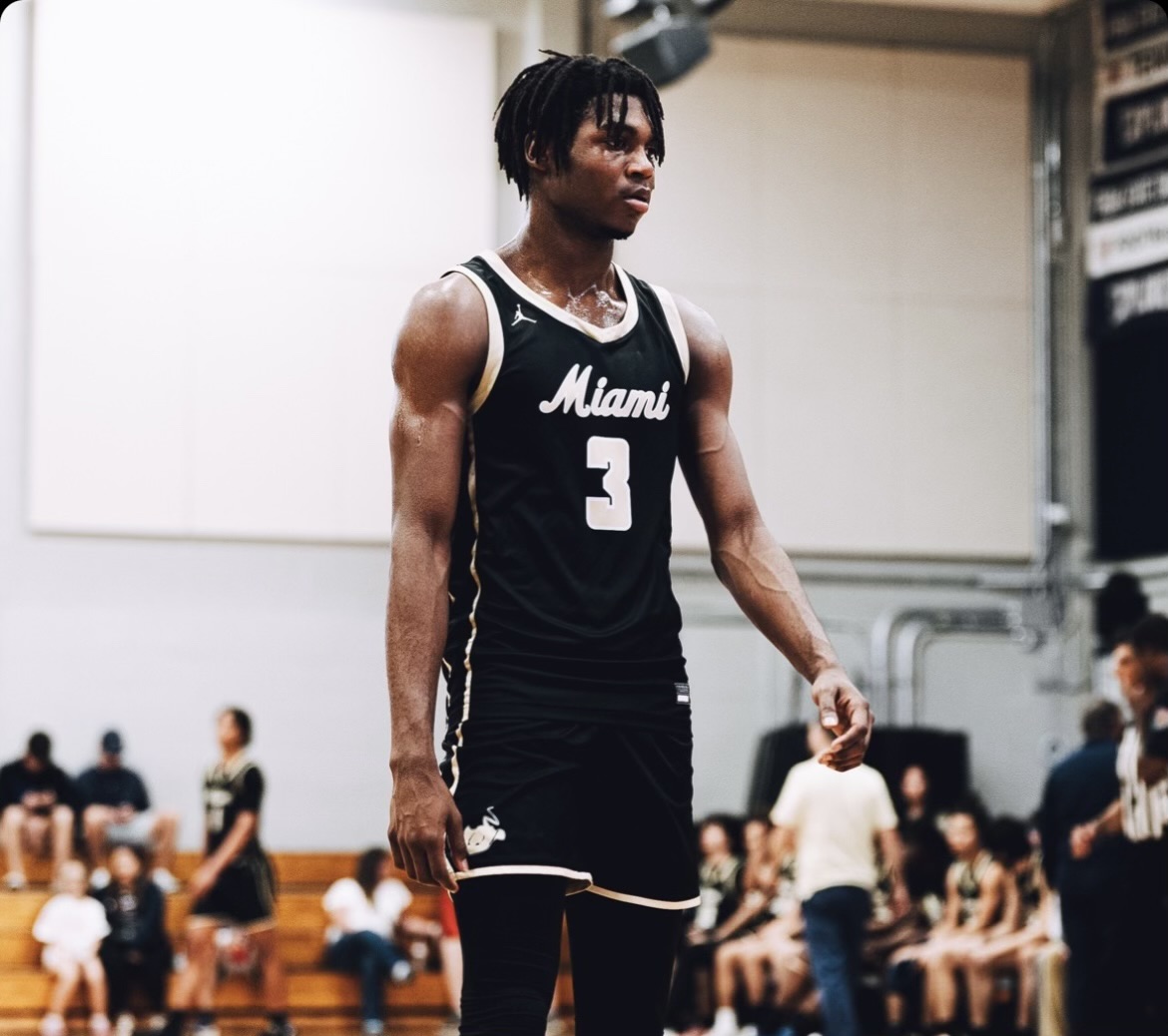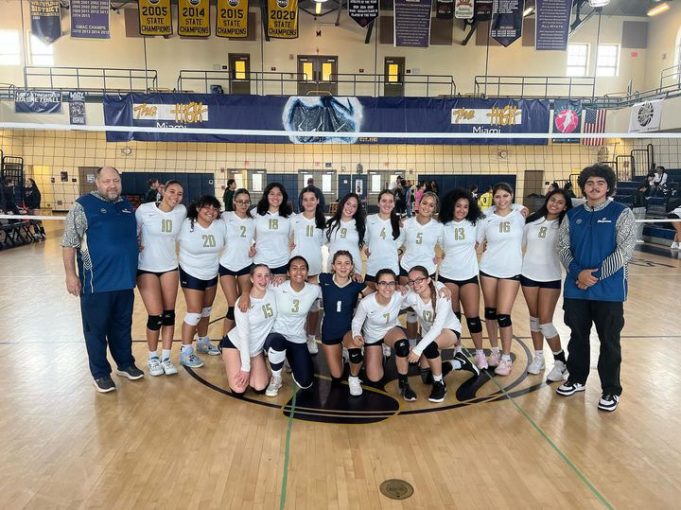Nomophobia – An Addiction to Phones
February 23, 2017
Having a cellphone is like a digital prison; you get trapped inside without realizing it. It can be so hard to let go that many people can’t live without their cell. They have nomophobia, which is the fear of being out of mobile phone contact.
What makes students so addicted?
Sophomore Kirk Espinoza says he’s so addicted to his phone because social media always draws him in. “It’s not like I’m actually doing anything of importance, but going through my timeline and looking at people’s posts are so addicting for some reason.”
Freshman Daniela Banon said, “I am addicted to my phone because it’s an easy form of entertainment and mostly because I always have my phone with me.”
Some students, however, draw a distinction between enjoying their phones and being addicted to them. Senior Wildny Present said, “I wouldn’t say I’m addicted, but I do spend most of my time on my phone.”
“I’m always using certain apps to listen to the music that I like. Other than that, I don’t really use my phone,” said freshman Kenneth Castillo.
What apps are students using?
The addiction for many comes from apps like Instagram, Snapchat, Twitter, and Facebook.
“I use message apps such as Kik messenger to talk to my friends in a group chat, video streaming apps, and I also have different types of video games,” said junior Justin Flores.
Junior Cesar Flores, who uses imessage to text his girlfriend, also plays Tetris a lot. “But I’m mostly on Twitter and Snapchat the most,” he said.
Sophomore Alexa Melendez uses apps such as Snapchat and Instagram to take pictures.
What are the pros and cons of using your phone so much?
For many having a cell phone is a big advantage. “It has everything you’ll ever need. You could search up anything. When there’s nothing to do, you could just chill and go through every social media such as Instagram, Twitter, or Snapchat,” said junior Gabriela Fernandez.
Junior Anthony Esperanza sees it two different ways. “The pros of being on my phone is that I get information fast, but the bad things are that I can’t use it in class and also my eyesight might get worse than it already is.”
On the negative side, sophomore Enrriet Leiva said, “Sometimes being on my phone leads me to procrastinate a lot, which is horrible for my grades.”
As Enrriet suggests, many students think that their excessive phone use is not a problem, but they might be mistaken. According to the article “Students are addicted to their cellphones, and they need our help” posted on the website for the PBS News Hour, “Students claim they can read and listen to music at the same time. They claim they can do math and text simultaneously. Numerous research studies state otherwise. The ability to multitask with a cellphone is an illusion. With a phone in front of them, students’ thinking is fragmented, as is all of their work.”
How long have students gone without their phones?
Some students who are constantly on their phones admit having a hard time building connections/socializing with other people face to face.
“It’s hard for me to make new friends because meeting someone online and talking to them is easy, but when it comes down to meeting them in person and talking to them face to face, it’s like we’re strangers,” said junior Joselyn Zamora.
“The longest I’ve gone without a phone was a day, and I honestly didn’t know what to do with my life,” said Gabriela Fernandez.
Although some feel like it’s the end of the world when they’re separated from their phone, others feel like it doesn’t really have an impact on them.
“The longest I’ve gone without a phone was a week or two. I handled it pretty well because I kept myself busy by cleaning and reading books. At first I really wanted to get it back, but then I realized it felt good disconnecting myself from all of it,” said junior Chelsea Palma.
Junior Sebastian Arana said, “I’ve gone months without my phone. It’s not something I need 100% of the time. It’s just something I use for entertainment and communication.”
How do teachers feel about student using their phones?
We know that students who can’t put down their phone usually have trouble with teachers that become frustrated, especially if they are teaching and the students are not paying attention. Chemistry teacher Mr. Ceballos catches students texting or watching videos on their phones which causes them to stay off task.
However, many teachers admit that students using their phones in class also comes with benefits. “Students can use their phones to complete certain exercises with the class. Another benefit for the students is that sometimes certain teachers reward their students if their assignments are posted online,” said English teacher Ms. Perez.
“I think that some of the benefits of phone uses in class can be to take pictures of the board when students run out of time or to research topics,” said Mr. Ceballos. He also likes using websites such as “Kahoot!” which helps students review for tests while making it fun enough for them to not lose concentration.
“I think that students who use their phones could benefit by researching certain math topics and watching videos of people demonstrating examples of how to do the work if they do not understand,” said math teacher Ms. Dopico. She also allows students to use their phones to do research for any homework they have to do that belongs to another class after they finish completing her work.






